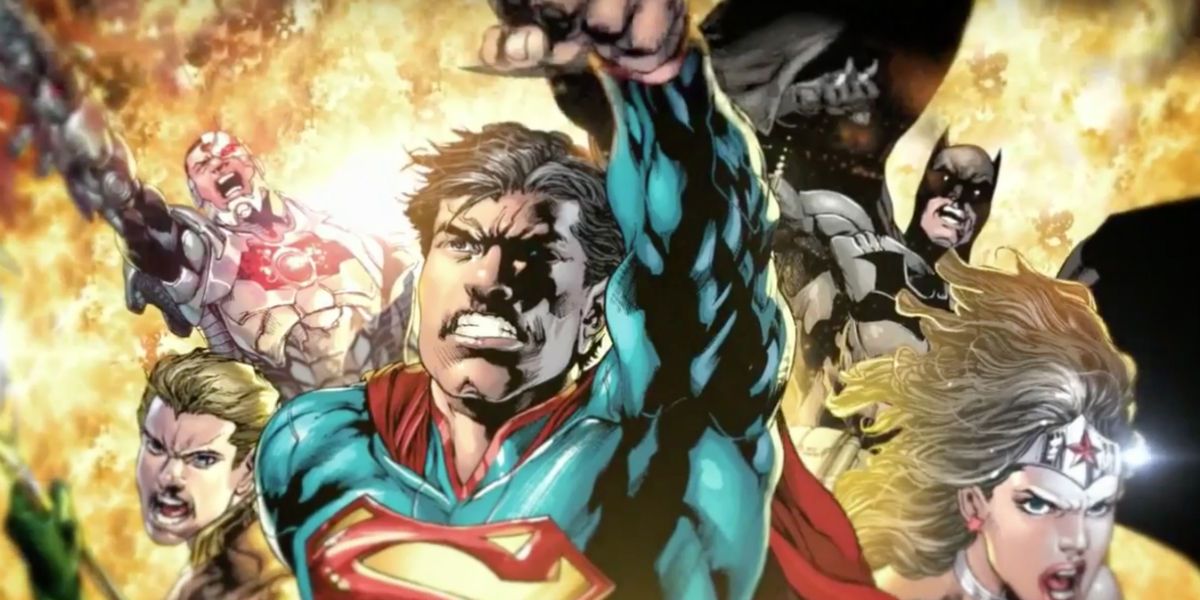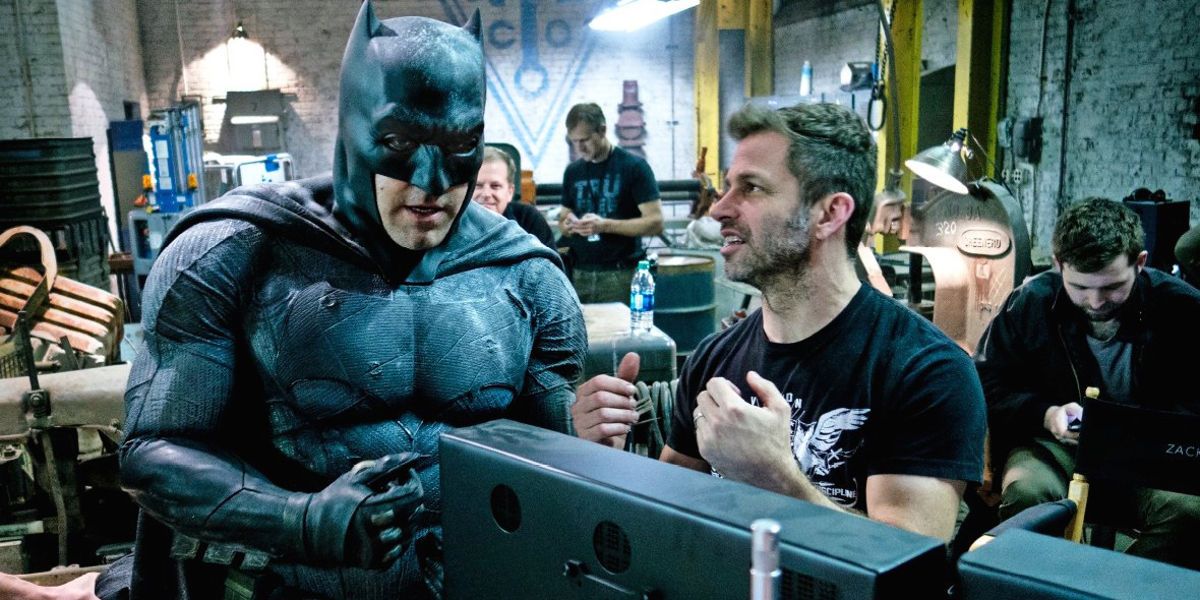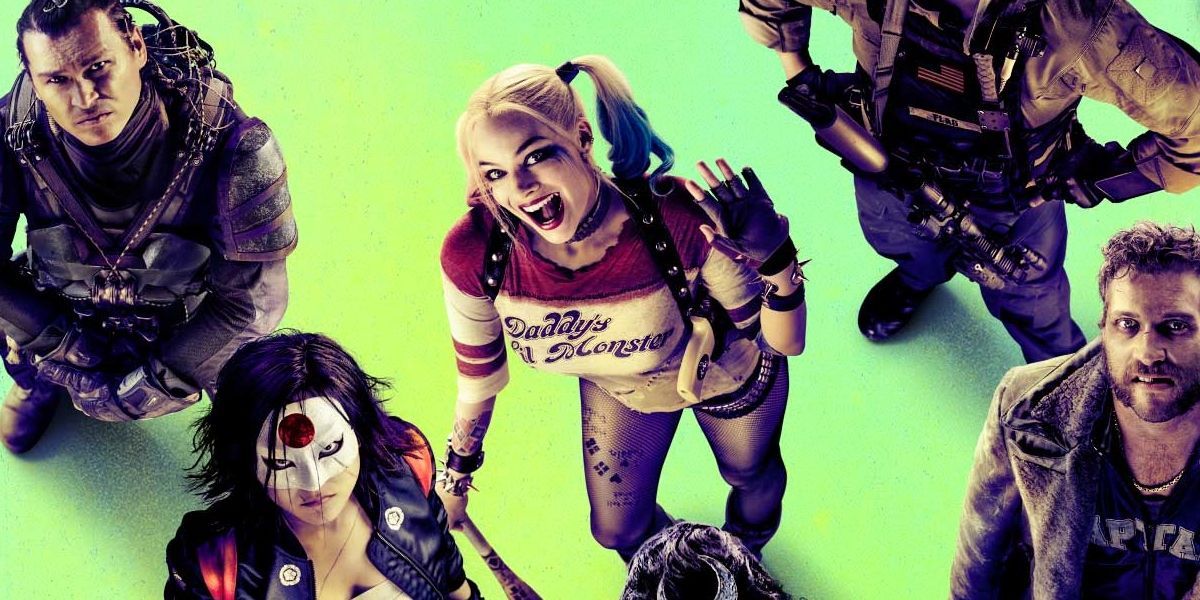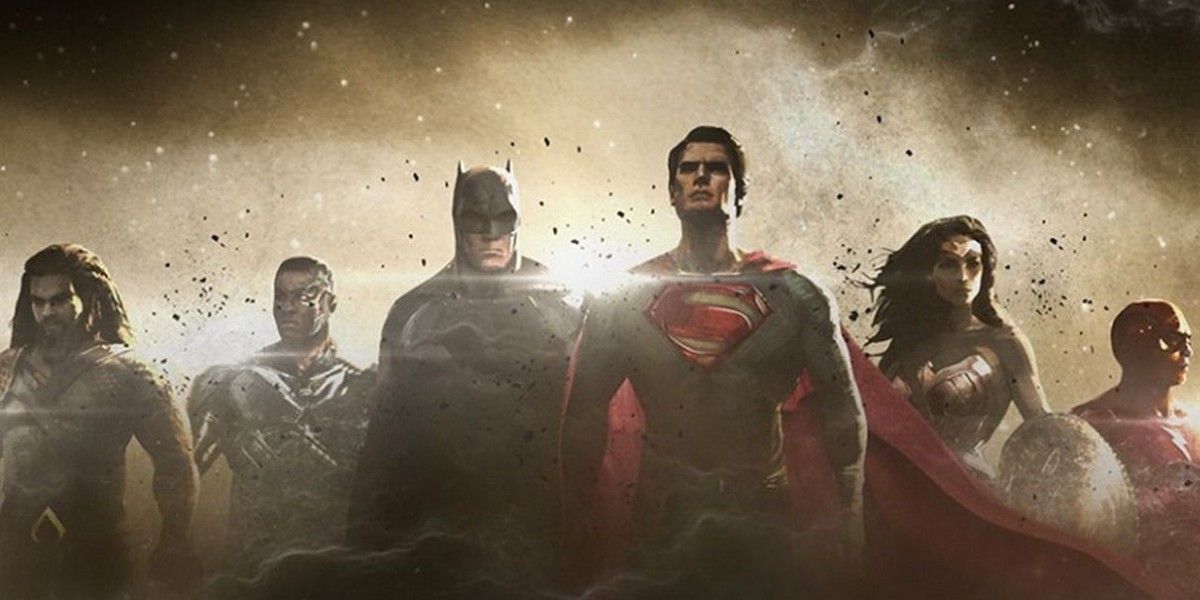Director Zack Snyder's Man of Steel may have been the first installment in DC's budding shared movie universe (a.k.a. the DC Extended Universe), but it's the filmmaker's fast-approaching Batman V Superman: Dawn of Justice that is going to really kick the DCEU into high gear. Warner Bros. Pictures isn't wasting any time moving ahead with additional DC films either, what with David Ayer's Suicide Squad being scheduled to arrive August 2016; Patty Jenkins' Wonder Woman currently filming in order to make a 2017 release date; Snyder's Justice League Part One being scheduled to start production around mid-April to make its Fall 2017 launch date; and the James Wan-helmed Aquaman already well into pre-production, so that cameras can start rolling on the water-based superhero film later in 2016.
The Marvel Cinematic Universe has always been the obvious candidate to compare to WB's planned DCEU, in terms of their similarities but especially their differences - since, in this age of the superhero film genre, it's more important than ever for anyone who makes a superhero film to find a way to distinguish their movie from the rest. Whereas Marvel Studios President of Production Kevin Feige is famous for being the overseer of the entire MCU and the direction that it takes, the DC movie universe has been described for some time as one that is more purely "filmmaker-driven"; that is, where individual films reflect the unique visions of the directors who are behind them, first and foremost.
Zack Snyder and DCEU producer Deborah Snyder (a.k.a. Zack Snyder's wife) are essentially serving as the overseers of the DC movie universe, but it has long been reported that the role the duo are playing in the construction of the DCEU is different - not better or worse, mind you, but different - than the one than Feige plays in shaping the MCU, where Feige's comparatively more actively involved in crafting every new installment. Here is how the Snyders explained WB's approach to handling the DC film universe to THR:
Deborah Snyder: Zack and [DC chief creative officer] Geoff Johns have outlined a timeline of where everybody is based off of, where our characters go in Justice League. So there's a framework. But it's filmmaker-driven, in that we want to hire directors who still have a point of view and that have latitude because we don't want all the movies to feel the same. David Ayer has a certain tone and feel to what he brought to Suicide Squad, as does Patty [Jenkins] to Wonder Woman. They have freedom to tell their story in the way that it needs to be told.
Zack Snyder: Batman V Superman was always a steppingstone for Justice League, and it was a way to bring the worlds together without being too jarring. Once you say Batman and Superman exist in the same universe, you're also saying that Wonder Woman can exist in that world and Flash and Cyborg and Aquaman. Our philosophy, though, is it's filmmaker-driven. A lot of it comes from the idea of "do unto others." How would I feel if I was told, "Listen, this is your movie, but shoot it like we say"? It's not fun and cool, and I don't think you get the best work from everybody. To understand that, there is a bigger storyline, and let's all support that and not blow up the entire universe because you have an idea that you think is awesome but doesn't make sense with the bigger thing.
There are certainly tonal similarities between Marvel Studios' film releases - all of them, to some degree, incorporate their share of light-hearted humor into the mix to offset their heavier dramatic elements (even the upcoming Captain America: Civil War will have a fair number of funny moments), but some are certainly more comedic than others; as a whole, though, the MCU is pretty tonally consistent, to such a degree that some fans have complained that the MCU's films are too family-friendly for their own good at time. By comparison, some fans have criticized upcoming DC movies like Batman V Superman and Suicide Squad for seemingly sticking with the darker and overall broodier tone that was previously established with Man of Steel - though the Sndyers see things differently.
Here is what the Snyders told THR, when asked if there is a "mandate" for a universal tone in all DC films (e.g. those old rumors that DC has a "No Jokes" policy):
Zack Snyder: The mandate is that we try and make the best movies we can. If you're making a Flash movie with Ezra Miller, it's like millennial Flash. It's going to be a little lighter than making a World War I epic with this feminist icon like Wonder Woman. The films do live in a united universe. I feel like the danger is — and I think that the studio would acknowledge this — when you start to mimic things like tone. Then, when you go to the movie, you pretty much know the experience you're going to have.
It's here that the idea of the DC movie universe being 'filmmaker-driven' becomes all the more important; after all, Zack Snyder films have traditionally been very different than David Ayer's movies, as have those made by Patty Jenkins and James Wan - and if the DCEU is truly 'filmmaker-driven', then these directors' respective superhero movies will reflect that. Arguably, we've already gotten proof that this will be the case, judging by the differences in the marketing styles of Batman V Superman and Suicide Squad; similarly, with The Flash solo movie in development being based on a story treatment by Phil Lord and Chris Miller (21 & 22 Jump Street) and potentially directed by Seth Grahame-Smith (writer of Abraham Lincoln: Vampire Hunter), it's difficult to imagine how the final movie result won't be strikingly different than the DC movies being directed by the likes of Snyder and Ayer.
And again, that's the most important thing for the DC movie universe to be, compared to the MCU - different. If the Snyders and their collaborators are successful in building a superhero film universe in a fashion that differs from how Feige and the creative minds at Marvel have already, then it will mean that we get more good movies that don't all feel the same - being made by both Marvel and DC, no less. What else can superhero film fans ask for?
NEXT: Zack Snyder Explains Batman V Superman R-Rated Cut
Batman V Superman: Dawn of Justice opens on March 25th, 2016, followed by Suicide Squad on August 5th, 2016; Wonder Woman on June 23rd, 2017; Justice League Part One on November 17th, 2017; The Flash on March 16th, 2018; Aquaman on July 27th, 2018; Shazam on April 5th, 2019; Justice League Part Two on June 14th, 2019; Cyborgon April 3rd, 2020; and Green Lantern Corps. on June 19th, 2020.
Source: THR




